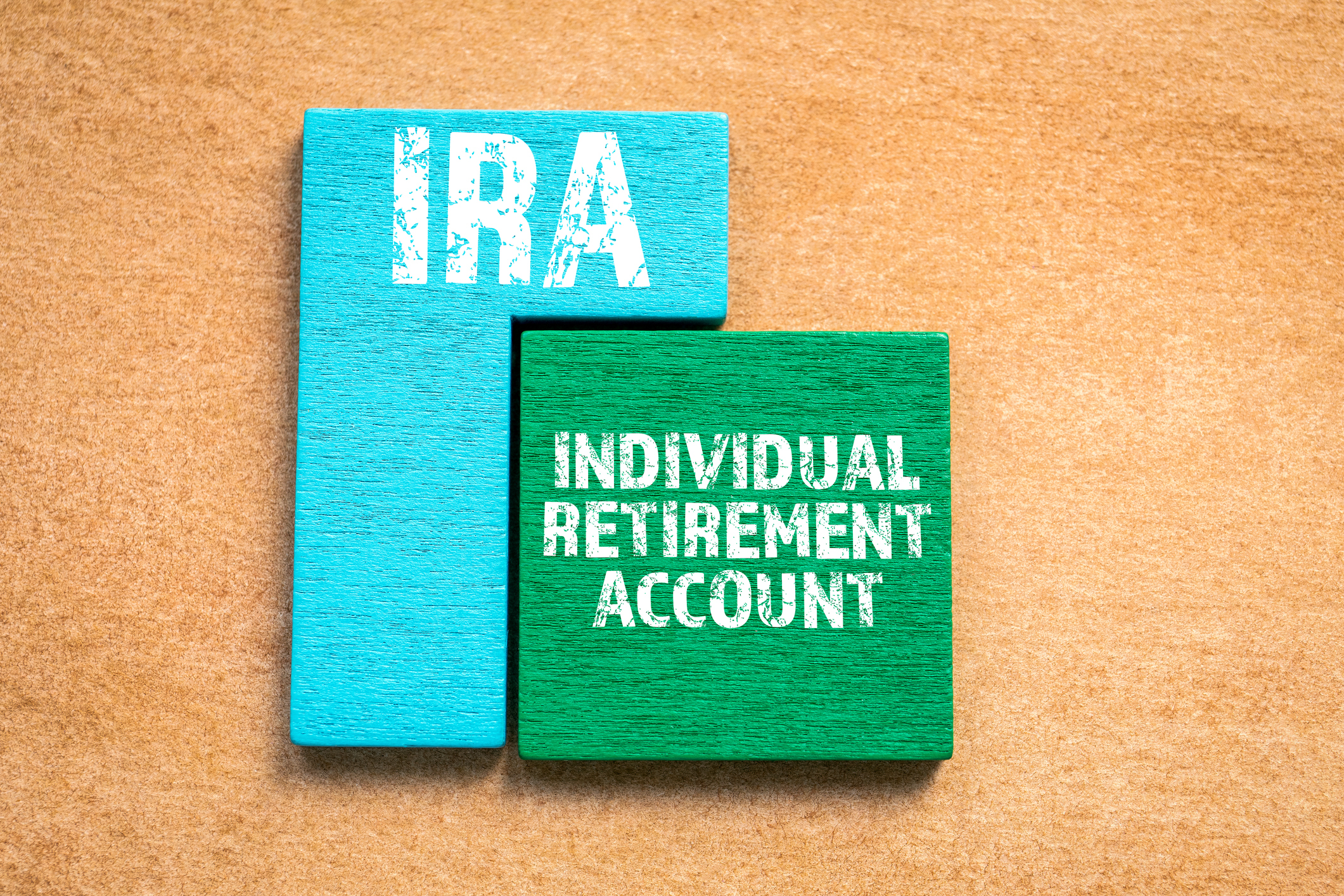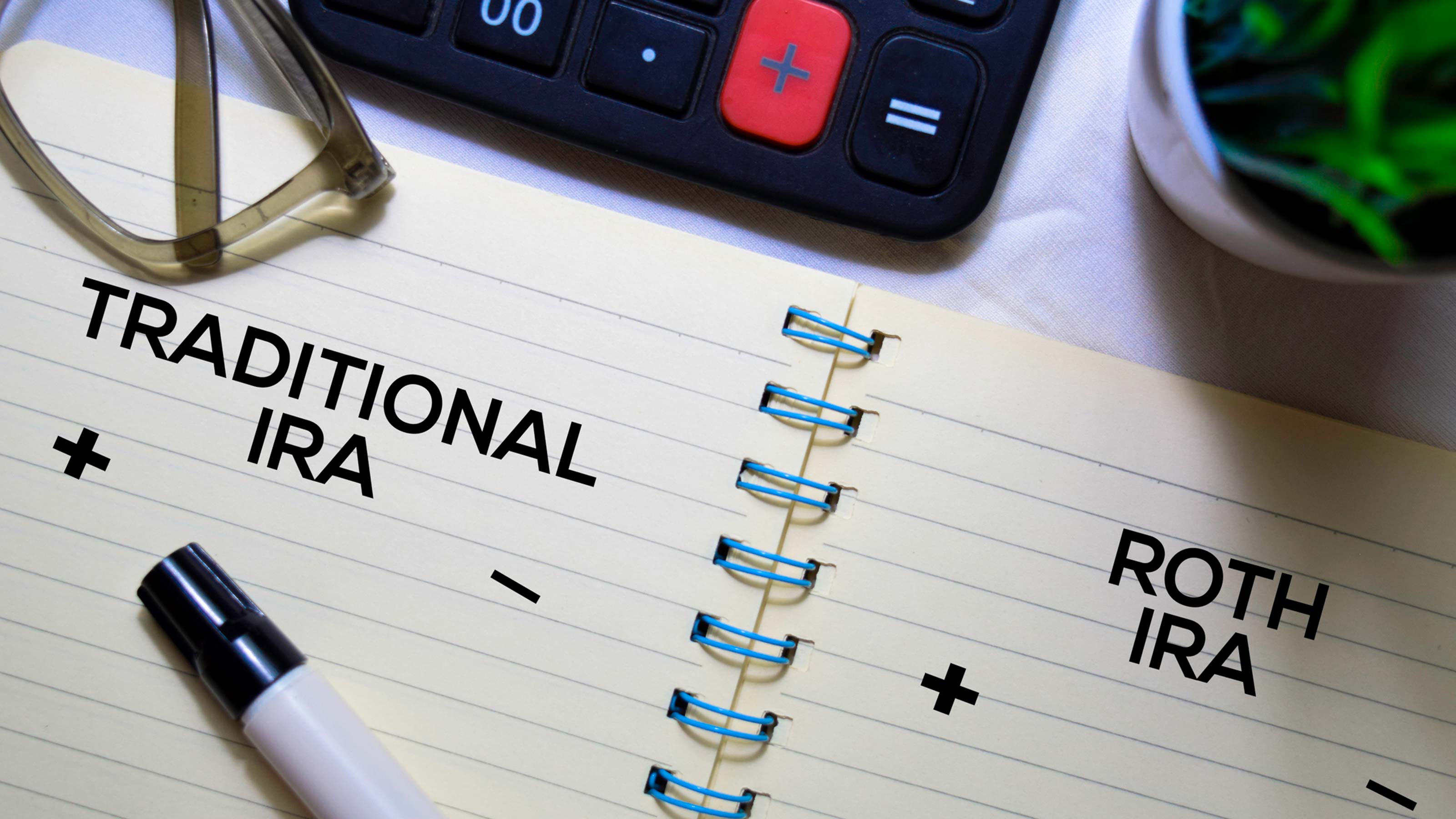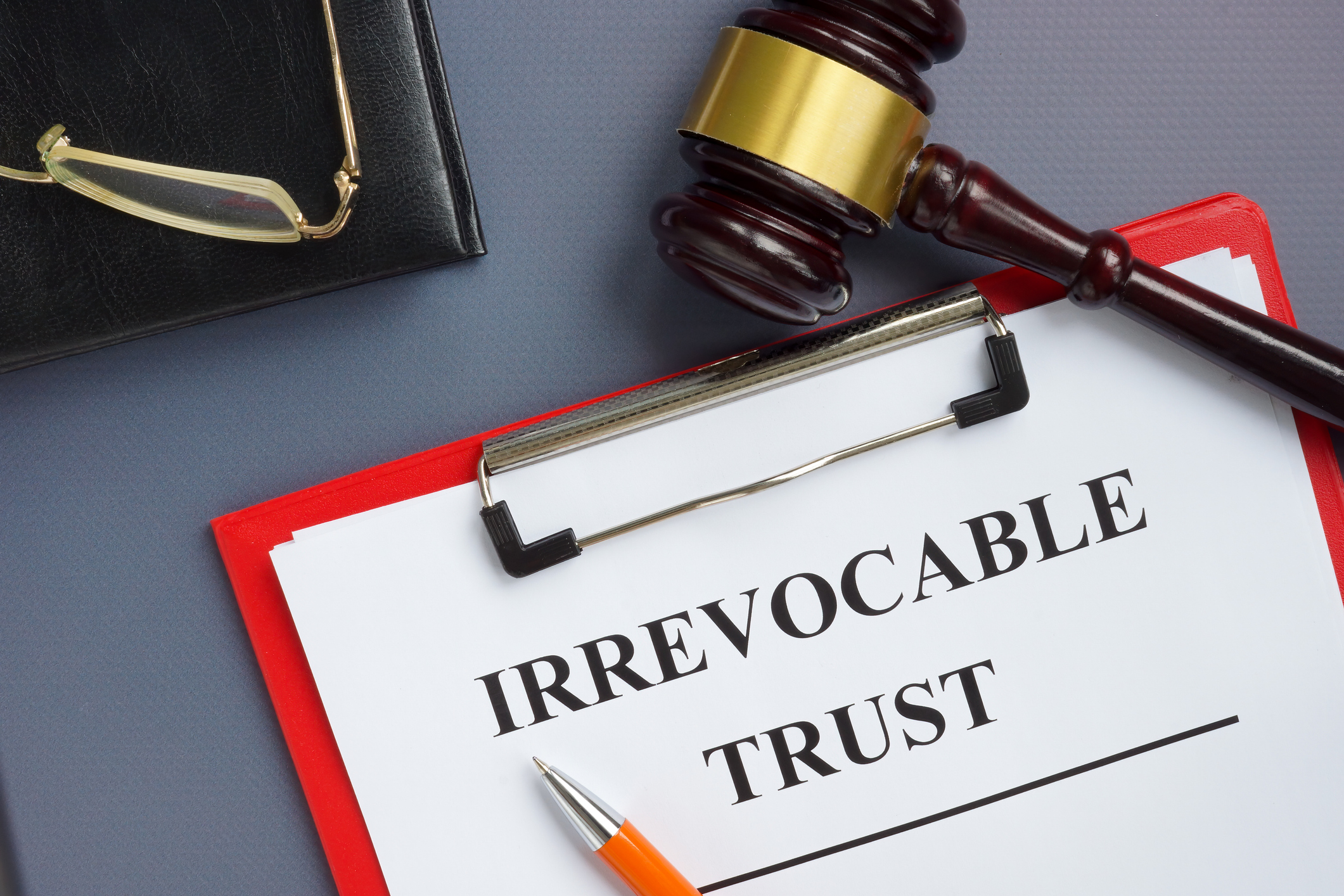Estate Planning Checklist: 13 Smart Moves
Follow this estate planning checklist for you (and your heirs) to hold on to more of your hard-earned money.


Profit and prosper with the best of Kiplinger's advice on investing, taxes, retirement, personal finance and much more. Delivered daily. Enter your email in the box and click Sign Me Up.
You are now subscribed
Your newsletter sign-up was successful
Want to add more newsletters?

Delivered daily
Kiplinger Today
Profit and prosper with the best of Kiplinger's advice on investing, taxes, retirement, personal finance and much more delivered daily. Smart money moves start here.

Sent five days a week
Kiplinger A Step Ahead
Get practical help to make better financial decisions in your everyday life, from spending to savings on top deals.

Delivered daily
Kiplinger Closing Bell
Get today's biggest financial and investing headlines delivered to your inbox every day the U.S. stock market is open.

Sent twice a week
Kiplinger Adviser Intel
Financial pros across the country share best practices and fresh tactics to preserve and grow your wealth.

Delivered weekly
Kiplinger Tax Tips
Trim your federal and state tax bills with practical tax-planning and tax-cutting strategies.

Sent twice a week
Kiplinger Retirement Tips
Your twice-a-week guide to planning and enjoying a financially secure and richly rewarding retirement

Sent bimonthly.
Kiplinger Adviser Angle
Insights for advisers, wealth managers and other financial professionals.

Sent twice a week
Kiplinger Investing Weekly
Your twice-a-week roundup of promising stocks, funds, companies and industries you should consider, ones you should avoid, and why.

Sent weekly for six weeks
Kiplinger Invest for Retirement
Your step-by-step six-part series on how to invest for retirement, from devising a successful strategy to exactly which investments to choose.
There's no such thing as "too early" when it comes to reviewing your estate plan. Case in point: several years ago, Kelley Brooks’ husband, Chris, who was being treated for hypertension, died in his sleep. Like so many other couples in their 40s, they had talked about estate planning but never got around to it. “You think you have forever to do all that, but you don’t,” says Brooks of Bellingham, Mass.
Experts hear similar stories all the time. “People often underestimate how much it will cost if they don’t plan,” says Renee Fry, founder and CEO of Gentreo, an online estate-planning company. For people nearly or newly retired, who potentially still have decades ahead for their assets to compound and grow, estate taxes are a huge concern.
The generous federal estate tax exemption is a whopping $13.99 million in 2025 and jumps to $15 million in 2026. Unfortunately, this large exemption has lulled many people into thinking they shouldn’t worry about estate taxes or other threats to their money. Still, they should, says attorney Martin Shenkman, a veteran estate and tax-planning attorney in the New York area.
“Anybody with wealth needs to plan,” says Shenkman. Estates with values exceeding the exemption amount by more than $1 million are taxed at a progressive rate schedule ranging from 18% to 40%, depending on the amount of the excess, and some states also levy an estate tax.
Asset protection strategies that benefit you during your lifetime can also double as estate tax moves that preserve wealth for your heirs, he says. “I’ve been jumping up and down about this because, in difficult economic times, you tend to see more litigation,” says Shenkman, who uses several types of trusts to move money out of clients’ taxable estates. “When people are hurting, they look at every option to get money.”
So, how can you save as much as possible on fees and taxes and preserve the most for the people you leave behind? Consider these 13 estate-planning moves, which may be as simple as designating a different IRA beneficiary or as complex as setting up a trust.

1. Rethink IRA investing strategies
Building on the original SECURE Act, SECURE 2.0 brings major changes to the administration of IRAs, both during the lifetime of the IRA account holder and after the account holder's death. It upended estate plans by forcing most non-spouse beneficiaries of traditional IRAs into a 10-year window for distributing assets. Before the law took effect, those beneficiaries could “stretch” the distribution of an inherited IRA over their own lifetime. Now, some families must rethink how they leave assets, particularly to children and grandchildren. (Minor children have until they reach the age of maturity before the 10-year clock for distributing assets starts ticking).
Beneficiaries, such as siblings or partners, who are not more than 10 years younger than the account owner, can still spread the distribution based on their life expectancy. People with disabilities are also exempt from the new rule. That could argue in favor of leaving a traditional IRA to them and other assets to children, the reverse of previous advice.
“Previously, people wanted to leave money to a grandchild and spread those [distributions] over 60 or more years. Now the window is different,” says Eric Bronnenkant, Head of Tax/Director of Tax Advisory and Planning at Edelman Financial Engines.

2. Sneak in a Roth conversion
Due to the SECURE 2.0 Act, the required minimum distribution age rose from 72 to 73 in 2023 and will rise again to 75 in 2033. If you’re younger than the RMD age, you could take a voluntary distribution and convert it to a Roth IRA, Bronnenkant says. It’s a smart estate-planning move. Although non-spouse beneficiaries such as children and grandchildren will still need to deplete the account within 10 years, Roth distributions are tax-free.

3. Leverage the annual gift tax exclusion
Every year, anyone can give anyone else a gift up to the annual gift tax exclusion amount — $19,000 in 2025 (unchanged in 2026), without triggering gift tax reporting requirements. Couples can each give an individual up to that limit, for a combined total of $38,000, without incurring the gift tax. Go over this amount, and you’re required to file a gift tax return, with any amount in excess applying toward your lifetime exclusion.
Usually, the annual gift tax exclusion is the first thing we talk about, “because it has no impact on the estate tax exemption, so you’re basically saving up to 40% on those gifts,” if you’re going to be subject to the estate tax, says Bronnenkant, referring to the top marginal estate tax rate. “Leveraging the annual exclusion every year is fantastic.”
Even better, he says, is the 529 college savings plan kicker, which allows a gift giver to superfund five years of gifting into one. This means you can contribute up to $95,000 at once to a plan in 2025, effectively spreading the exclusion over five years. If you’re married, the limit per couple is $190,000 per beneficiary. This remains unchanged for 2026.
On the downside, you can’t spread the deduction over multiple years on your state taxes or make additional gifts to the same person during the five years. And if you die during the five years while you’re spreading the exclusion, only a prorated amount applies to your estate. But Bronnenkant still thinks it’s a great deal for many people.

4. Use up your lifetime gift exemption early
If you think gift and estate tax limits may be heading lower in the distant future, Bronnenkant suggests using up your lifetime gift exclusion now. “If you have an asset you think will appreciate and want to leverage today’s exclusion because you’re concerned it’s going lower, the IRS has given guidance indicating you won’t be penalized for using up your exemption while you’re alive,” he says.
If you hold onto an appreciated asset and die when the exemption is lower, your estate tax will be higher because more of the estate will be taxable. So, what happens if you use up the exclusion? You’ll still benefit because there is less in the estate that can be taxed when you die. There’s a tradeoff, however: The cost basis of gifted assets carries over to the person receiving the gift.
“If you were going to end up being below the estate tax exemption in either scenario, you may be better off holding onto the asset until death so [your heirs] can benefit from the step-up in basis,” he says. Plus, you’ll have more security in case you need the money. “I would prioritize economic security currently over a potential tax benefit in the future that is uncertain.”
Another gifting strategy that doesn’t sacrifice economic security is giving appreciated assets, such as stocks, to an ill spouse who is expected to die sooner than you will. Have your spouse name you as a beneficiary, putting you in line for a stepped-up basis at your spouse’s death.
"The IRS is hip to this strategy, and they’ve said the person who receives it must have it for at least a year,” he notes. And remember, the “ill” spouse could outlive the other.

5. Pay medical or education expenses directly
Another way to save on future estate taxes is to write checks for someone else’s medical expenses or education. Paying medical bills or tuition — for preschool through graduate school — doesn’t count toward the annual exclusion or the estate tax exemption, provided the checks are written directly to the health care provider or school, Bronnenkant notes.
“You can keep writing checks all day long, and it reduces the taxable estate while making someone else very happy they don’t have to pay,” he says.
What if we give away too much? “It’s a fair question,” Bronnenkant says. He stated that “a lot of people are re-evaluating their charitable contributions and their gifting to grandchildren to see if those are sustainable, and people are at least considering cutting back temporarily.”

6. Build an irrevocable trust for your spouse
Many have a similar unease with irrevocable trusts because, by definition, they essentially mean giving up control of assets. But creating one now could help you take advantage of today’s high exemption, Shenkman says.
“If you move some money into a trust today, you can still benefit from [the exemption.] For example: Say Spouse 1 puts money into a trust for Spouse 2 and all descendants,” he says. “As a couple, you can still access the money.”
Staying under the exemption amount gets money out of an estate now without a gift tax, and you can still have some access to the funds through a spouse, with the rest going to other heirs.
The trusts he’s talking about are called spousal lifetime access trusts. SLATs are irrevocable trusts with a spouse as beneficiary and perhaps children or grandchildren as remainder beneficiaries. While you’re still alive, your spouse can tap the trust for health, education and general living expenses, which indirectly benefits you. Meanwhile, your spouse can set up a SLAT naming you as beneficiary, but the trusts cannot be identical, or the IRS may come knocking.
Shenkman frequently creates SLATs for clients and has even established them for himself and his wife. “We’re both [each other’s] beneficiaries, and it has been untouched for over eight years,” he says, though if they end up needing the money down the road in retirement, it’s there. Generally, longevity helps prove the trusts weren’t thrown together quickly to hide assets from creditors.
Shenkman recommends hiring an independent trustee to oversee distributions to avoid a legal challenge to the trust. And there are other caveats, including a cautionary note about dumping a big portion of your retirement wealth into them.
SLATs can be useful, but don't go overboard. A couple shouldn't stuff a SLAT so full of funds that they can't maintain their lifestyle, according to PNC Insights, a wealth management publication. That’s because, at their core, SLATs are irrevocable. Thinking you could be heading for a gray divorce? Steer clear.
As with other more complex trust strategies discussed here, it’s important to consult an experienced attorney about these ideas.

7. Bypass the need for a portable exemption
Surviving spouses can choose to carry forward any remaining estate tax exemption unused by their deceased spouse, but it may not be the best strategy if you have appreciated assets — such as real estate, stocks, collectibles, etc. — Bronnenkant says.
In that case, you may be better off preserving assets for heirs with a bypass trust, which is similar to a SLAT except it is funded at the first spouse’s death. The second spouse retains limited access to the funds inside the trust, with expenses for health, education, maintenance and support generally approved. When the second spouse dies, the remaining heirs simply assume control of the appreciated assets, which are outside of the second spouse’s taxable estate.
Some blended families use these trusts to provide for a surviving spouse and then eventually for children from a previous marriage. The tax savings occur when the second spouse dies, as the funds in the bypass trust are distributed directly to the children, thereby avoiding estate tax. They don’t get a stepped-up basis, but even the top marginal capital gains rate is lower than the federal estate tax rate, Bronnenkant says.

8. Safeguard assets from creditors
Uncle Sam isn’t always the biggest threat to preserving assets for heirs. If you’re a doctor, board member, or owner of a closely held business who wants assets protected from lawsuits and estate taxes, domestic asset protection trusts are a way for you to move money out of the estate and still be able to access it, Shenkman says.
You can create these irrevocable, self-settled trusts in 21 states. Although the money in them is out of the person’s estate and protected from creditors, the person funding the trust can also be a beneficiary.
“We have the most litigious society in history now,” Shenkman says.

9. Manage assets with revocable trusts
Some experts, including Shenkman, believe revocable trusts are a lot like annuities — more of them are sold than bought. He says they are often sold to clients as a blanket strategy for avoiding probate and reducing taxes, but the fact that they are revocable renders them ineligible for many estate tax strategies. And in many states, probate isn’t that onerous. So why does he still use them? To manage assets as clients age or have health issues.
“It’s easier as successor trustee to take charge of assets in a revocable trust than as an agent under a power of attorney,” he says. Easy typically means less costly, too, because you have professionals on the clock for shorter amounts of time. A revocable trust with a separate tax identification number can help avoid scams on seniors as well, he says, preserving even more money for potential heirs.

10. Plan for Medicaid and special needs
Some people bristle at the term “Medicaid planning” because it suggests that someone is trying to cheat the system by preserving assets that could have been spent before Medicaid kicked in. But the rising cost of nursing home care, assisted living facilities and retirement homes means many middle-class households could be wiped out by a long stay, impoverishing the spouses of those in care.
“I look at it as long-term care cost planning,” says Regina Spielberg, a Partner and Co-Chair of the Estate, Gift and Charitable Planning Practice Group at Schenck, Price, Smith & King, LLP. “For middle-class people, if one or both members of a couple need long-term care services, their assets are quickly being consumed.”
Medicaid has a five-year 'lookback' period for examining income sources and transfers out of an estate. If the transfers aren’t to spouses or children with disabilities, it’s a problem, Spielberg says. She often helps clients construct a portfolio that can be drawn down to pay for the person’s care while safeguarding some assets for the spouse.
The best ways to do that vary by state. For New York clients, she often creates income-only trusts that allow the spouse of someone on Medicaid to remain in their home. These irrevocable trusts prevent assets from being sold to pay for care costs. Her New Jersey clients, meanwhile, typically use life estate deeds, which transfer property to heirs while bypassing probate, she says.
Special-needs trusts can also help you protect some money for loved ones. Shortly after her husband, Michael, 42, was struck and killed by a car in 2015, Melinda Campbell set up a special-needs trust for one of her children, who has a disability. The trust can provide income for her son without affecting his eligibility for public assistance.
“We [she and Michael] had met with the lawyer and received life insurance recommendations, but nothing had been finalized” before he died, she says. Even so, she says that directing a portion of her modest estate in this way will provide some peace of mind and cost savings.

11. Reduce fees for a simple estate
Depending on the complexity, attorney fees can range from several hundred dollars to as much as $2,000 for basic estate planning. You can pocket most of that money by going online. In addition to Gentreo, players include Quicken WillMaker and Trust, Trust & Will, Rocket Lawyer and LegalZoom. Be sure to shop carefully if you choose this route, as the capabilities and customization vary. Some of them offer trust preparation, while others don’t.
“A will is going to protect families, but some people feel they need that revocable trust,” says Gentreo’s Fry. High-net-worth families with complex situations, such as multiple homes or a need for asset protection, will still need a lawyer to set up some of the other trusts discussed in this article.

12. Clean up investment clutter
Settling the estate is another place to find ways to keep fees down. On the time-is-money front, someone with accounts spread over multiple banks and brokerage accounts is making things difficult not only for themselves but especially for heirs.
“When [a person like this] dies, someone’s going to have to find all these accounts, figure out the basis in the stocks, and I’ll bet there are stock and bond certificates stuffed in a safe deposit box, "Shenkman says. "That, without question, is going to be a more costly, complicated estate settlement than if he had consolidated everything at one institution with everything saved on a laptop and backed up.”
That said, if you're more comfortable having your accounts in more than one bank or financial institution, or you have retirement accounts, stock and bonds, make sure this information is easily accessible to your heirs, with bank names, beneficiaries, account numbers and other pertinent information included.

13. Consider hiring a professional to serve as trustee
Litigation also costs more, so don’t forget the power (and cost) of peace when trying to preserve money for heirs, experts say. To that end, consider hiring a professional to serve as trustee. This will not only relieve heirs of time-consuming duties but also help avoid direct conflicts that tend to occur, for example, when one sibling is in charge of decision-making.
Related Content
Profit and prosper with the best of Kiplinger's advice on investing, taxes, retirement, personal finance and much more. Delivered daily. Enter your email in the box and click Sign Me Up.

Janet Kidd Stewart created The Journey, a nationally syndicated personal finance column that ran for more than a decade in dozens of U.S. newspapers. As a reporter for the Chicago Tribune and Chicago Sun-Times, she covered banking, derivatives, markets and economics. She holds bachelor's and master's degrees from the Medill School of Journalism at Northwestern University. Widowed suddenly in 2013, she joined online grief groups and began talking with other widows about survivor benefits and adjusting to a new financial reality. Now living and working in Minneapolis, she is compiling those stories, and her own, into a forthcoming book.
- Kathryn PomroyContributor
- Erin BendigPersonal Finance Writer
-
 How Much It Costs to Host a Super Bowl Party in 2026
How Much It Costs to Host a Super Bowl Party in 2026Hosting a Super Bowl party in 2026 could cost you. Here's a breakdown of food, drink and entertainment costs — plus ways to save.
-
 3 Reasons to Use a 5-Year CD As You Approach Retirement
3 Reasons to Use a 5-Year CD As You Approach RetirementA five-year CD can help you reach other milestones as you approach retirement.
-
 Your Adult Kids Are Doing Fine. Is It Time To Spend Some of Their Inheritance?
Your Adult Kids Are Doing Fine. Is It Time To Spend Some of Their Inheritance?If your kids are successful, do they need an inheritance? Ask yourself these four questions before passing down another dollar.
-
 States That Tax Social Security Benefits in 2026
States That Tax Social Security Benefits in 2026Retirement Tax Not all retirees who live in states that tax Social Security benefits have to pay state income taxes. Will your benefits be taxed?
-
 10 Retirement Tax Plan Moves to Make Before December 31
10 Retirement Tax Plan Moves to Make Before December 31Retirement Taxes Proactively reviewing your health coverage, RMDs and IRAs can lower retirement taxes in 2025 and 2026. Here’s how.
-
 The Rubber Duck Rule of Retirement Tax Planning
The Rubber Duck Rule of Retirement Tax PlanningRetirement Taxes How can you identify gaps and hidden assumptions in your tax plan for retirement? The solution may be stranger than you think.
-
 What to Do With Your Tax Refund: 6 Ways to Bring Growth
What to Do With Your Tax Refund: 6 Ways to Bring GrowthUse your 2024 tax refund to boost short-term or long-term financial goals by putting it in one of these six places.
-
 What Does Medicare Not Cover? Eight Things You Should Know
What Does Medicare Not Cover? Eight Things You Should KnowMedicare Part A and Part B leave gaps in your healthcare coverage. But Medicare Advantage has problems, too.
-
 12 Great Places to Retire in the Midwest
12 Great Places to Retire in the MidwestPlaces to live Here are our retirement picks in the 12 midwestern states.
-
 15 Cheapest Small Towns to Live In
15 Cheapest Small Towns to Live InThe cheapest small towns might not be for everyone, but their charms can make them the best places to live for plenty of folks.
-
 15 Reasons You'll Regret an RV in Retirement
15 Reasons You'll Regret an RV in RetirementMaking Your Money Last Here's why you might regret an RV in retirement. RV-savvy retirees talk about the downsides of spending retirement in a motorhome, travel trailer, fifth wheel, or other recreational vehicle.
